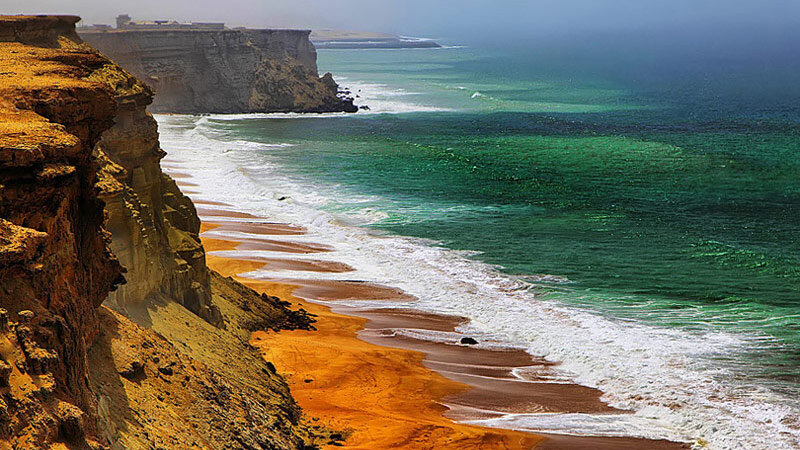Iran to cooperate with India, Pakistan and Oman to study tsunami off Makran coast
TEHRAN (TehranTimes): Iran is conducting a research on tsunami off the southern Makran coast in collaboration with, India, Pakistan and Oman, aiming to identify high-risk areas, a faculty member of the National Institute of Oceanography and Atmospheric Sciences has announced.
Makran is a semi-desert coastal strip in Baluchistan, Pakistan and Iran, along the coast of the Gulf of Oman. The narrow coastal plain rises rapidly into several mountain ranges. Of the 1,000 kilometers coastline, around 750 kilometers is in Pakistan. Makran is very sparsely inhabited, with much of the population concentrated in a string of small ports including Chabahar, Gwatar, Jiwani, Jask, Sirik, Gwadar, Pasni, Ormara and many smaller fishing villages.
Considering the importance of the Makran coast development issue, a project on the tsunami in the region has been defined by the United Nations Educational, Scientific and Cultural Organization (UNESCO), which has been launched for about a year in collaboration with four countries, Mahmoud Reza Akbarpour said.
Previous studies have shown that the region is prone to tsunami, so UNESCO took the lead and provided funding for the project, he stated, adding, Iran has cooperated in several UNESCO tsunami studies that examined the Makran fault and its effect on the Iranian coast of Makran.
“We have started research on the tsunami since past 4 years, but given the importance of the subject, we are also implementing this joint project to map the area in terms of earthquakes and tsunamis.”
Of course, each country has already done this separately, but now they are going to work together, he added.
Since the earthquake magnitude for the region is not clear, it is very important to be prepared if it is to occur and that the project will help taking effective action in this regard, he stated.
“We predict an earthquake ranging from 8 to 9 on Richter scale and what impacts each of these Richter earthquakes will have.”
Referring to two parts to the project, he noted that a rapid alert system aimed at identifying high-risk areas and which system should be used if such an earthquake happens and how the institutions would work together to give the first warning and evacuate the area; the send part is related to how to deal with a tsunami.
“We have so far performed several maneuvers; and the organizations’ tasks have also been specified,” he said.
He went on to highlight that as the first wave of tsunami reaches land after 15 minutes, training on how to evacuate the area at this time is crucial.
“Moreover, we have held 7 to 8 workshops in India and Oman, and some workshops will be held in Oman in March, and in June we will have two workshops in Iran.
These issues also need to be taught in schools, so we published the tsunami book and distributed to all schools in coastal provinces.”
It is a book that teaches children images and stories about what to do in the event of an earthquake and tsunami, he noted.
“In deprived areas, people have the most important role to play in maintaining their health, of course, we have good alert systems, but we also need to upgrade the technology, which requires fund, and none of which are in place,” Akbarpour lamented.
Pointing to the tsunami in the Caspian Sea, he said that the Caspian Sea might experience an earthquake but does not have enough power to cause a tsunami.

إرسال تعليق